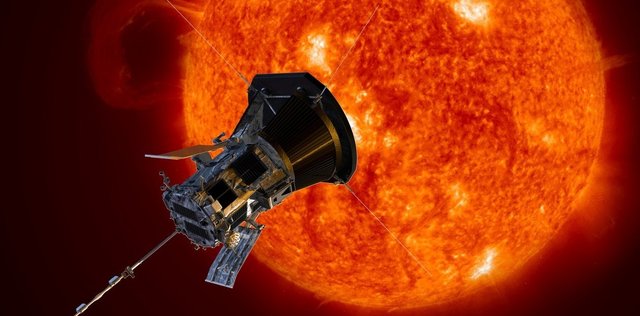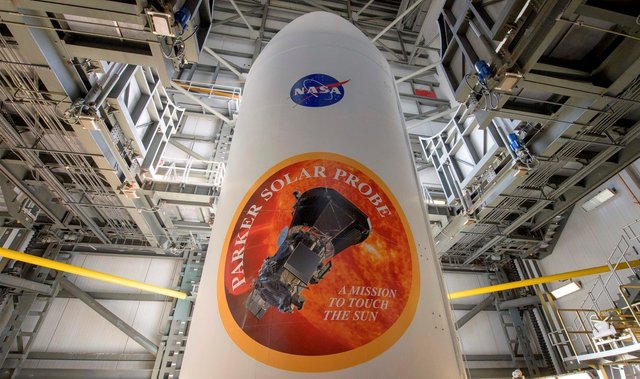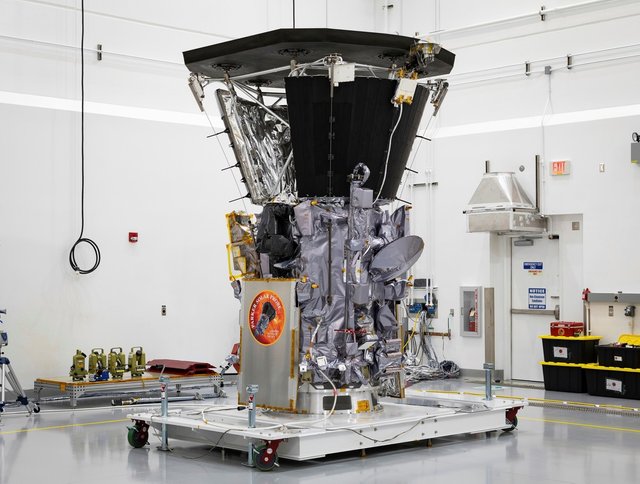Parker Solar Probe Countdown to the historic mission to the Sun that will study its atmosphere
In the next 7 years, the probe will go around the Sun 24 times and will be only 6.2 million kilometers from its surface.

Although Sol is the only star that we can study closely, we have little information about the atmosphere of this source of light and heat that radiates from the Earth. In order to study the origin of the solar wind and the extreme temperature of its corona, this Saturday the Parker Solar Probe (PSP) mission will be launched from Cape Canaveral, Florida. The probe designed by Johns Hopkins University will try to reach some 6 million kilometers from the Sun and will travel up to 150 million kilometers from Earth. A challenge that no ship had achieved. The closest the star's humanity was to was in 1976, when the space probe Helios 2 touched 43 million kilometers.
The mission will describe 24 orbits close to the Sun during the next seven years, and will be only 6.2 million kilometers from the solar surface. This is seven times closer than the Helios 2 and about 16 times the average distance between Earth and the Moon. Also, unlike other exploration missions, the PSP is a ship without eyes. Its four main scientific instruments (FIELDS, WISPR, SWEAP and ISOIS) will not observe the Sun, but will limit themselves to measuring the flow of particles and energy from their environment.

"This is a historic mission that will revolutionize our understanding of the Sun, where changing conditions can propagate in the solar system affecting the Earth and other worlds, Parker Solar Probe will be exposed to the Sun, facing exaggerated temperatures and radiation," they reported. of NASA.
The probe must withstand temperatures of 1,400 degrees and radiation levels 475 times higher than those experienced on Earth. If there were a crew member on board, it could contemplate a solar disk 23 times wider than the one observed from our planet.

One of the unknowns that will try to clear this mission is why the temperature of the crown is 300 times greater than that of the surface of the Sun. A mystery that defies the laws of physics.
In addition, it will study magnetic fields, plasma, energetic particles and the solar wind. The combination of measurements plus the visual recording of the images will provide crucial information about the corona and the origin and evolution of the solar wind.

You can follow these people who are very great friends and help to increase many with their new accounts. God bless you and I hope you continue to help in that way @hr1 and @majes @jdbry


Congratulations @paola-vnzla! You received a personal award!
You can view your badges on your Steem Board and compare to others on the Steem Ranking
Do not miss the last post from @steemitboard:
Vote for @Steemitboard as a witness to get one more award and increased upvotes!